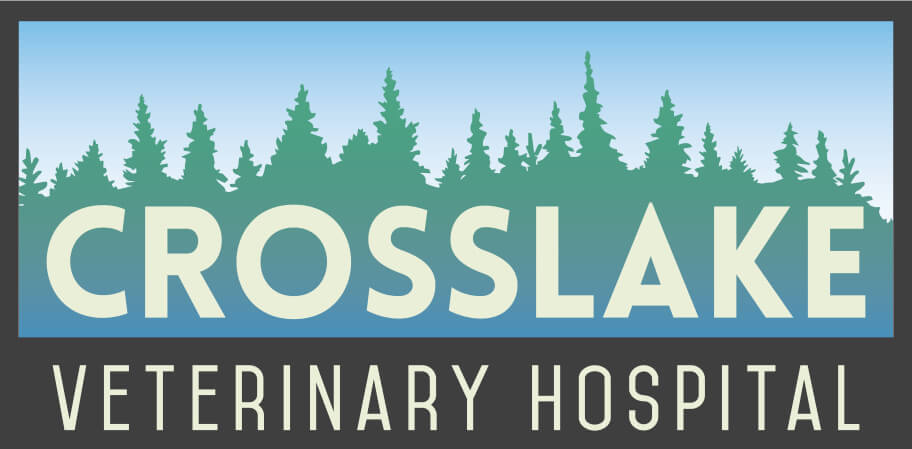How can I care for my dog's teeth at home?
There are a variety of ways you can do this! The first and really best one would be brushing your pet's teeth daily, just like how humans need to brush their teeth daily. If you're unable to do that very well or need additional help, there's a list of products approved by what's called the Veterinary Oral Health Council. It goes over different dental diets, chews, and different things like that which can help your pet's teeth, which are certainly worthwhile considering as well.
What are some signs and symptoms of dental disease in dogs?
Oftentimes, since it develops so slowly, a lot of dogs don't show much pain in their mouth, but you may see some things to indicate dental disease. First of all, really bad breath. Infected teeth or a lot of tartar buildup on the teeth can oftentimes cause a very foul odor from the mouth. They may chew with their head side to side or drop food occasionally. They may be a little bit head shy and not want you to touch their mouth, and in severe cases, when they have an actual infection of the root of the tooth, they can have swelling of their face or eyes potentially.
What are some of the common dental diseases in dogs?
The most common things that we see in most dogs are going to be broken teeth from chewing on objects that are too hard, such as hard bones or antlers, where the pulp canal is open, and those are going to be painful and at risk for infection. We also see a lot of periodontal disease, specifically in older and small breed dogs, where they build up a lot of tartar on their teeth that causes recession of the bone and, therefore, painful furcation exposure and mobility of the teeth there as well. There are also different kinds of oral masses and proliferative gum diseases that we can see that are less common but definitely things that we see as well in dogs.
Why is early detection and diagnosis of dental disease so important?
The biggest thing with oral health and dental disease in dogs is we want them to not be in pain, so our goal with dentistry in dogs is to treat anything that may be painful or become painful to them in the near future. So the earlier we get on top of things for them, the less oral pain they'll feel going forward, and the less extractions they'll need overall, just less oral surgery in general.
How often should my dog's teeth be checked?
Every dog should have their teeth checked at least a minimum of once a year. Some dogs, in particular, that are overly predisposed to periodontal disease or other diseases, potentially more, but at bare minimum once a year, your pet should be examined and have their teeth checked out.
How do I know if my dog needs a dental exam?
Every pet should have a dental exam at minimum once a year, regardless of if you see anything at home. Oftentimes they really won't show us signs of any dental issues, so it's always a good idea just to make sure that at least once a year your pet has a dental exam. If they have any signs that they have oral discomforts, moving their head funny, chewing strangely, or have bad breath, definitely sooner rather than later we'd want to get them in.
How do I know if my dog's teeth are causing them pain?
Oftentimes the hard part is that we don't know. A lot of dental disease develops quite slowly where dogs really don't show us a whole lot of oral pain over time. Some things you may notice are that they may be chewing with their head and moving side to side or chewing only on one side. They may be dropping some food, they may be head shy and not want you to touch their mouths a whole lot, or show that they only have soft food preferences. But sometimes, they really don't show a lot of signs until we actually get it addressed for them.
Will my dog be getting dental x-rays?
Yes, it's very important that every dog have dental x-rays whenever they have a dental procedure. We're finding that a lot of issues are underneath the gum line of the mouth that we can really only see with x-rays, and that's definitely the best way or one of the main ways that we can find if there are painful ongoing issues in the mouth that need to be addressed for your pet.
How long does a dog dental cleaning appointment take?
It really depends on how many issues are found in the mouth. If it's only a routine cleaning where no extractions are needed and the teeth are all looking healthy, usually that takes about an hour to an hour and a half depending on the size of the dog and the amount of tartar. If we do start running into lots more extractions or more severe disease, it can last up to three to four hours, which is why the more frequently we address the teeth, the shorter the procedure and overall the safer for your pet it is in the long run.
If my dog needs extractions, will he be given pain medication?
Absolutely, just like how extractions in humans can be painful and involve some burring of the bone and disruption of the tissue with sutures, we'll absolutely be sending your pet with some pain medication afterwards to make sure that they're staying comfortable while they heal up from their procedure.

